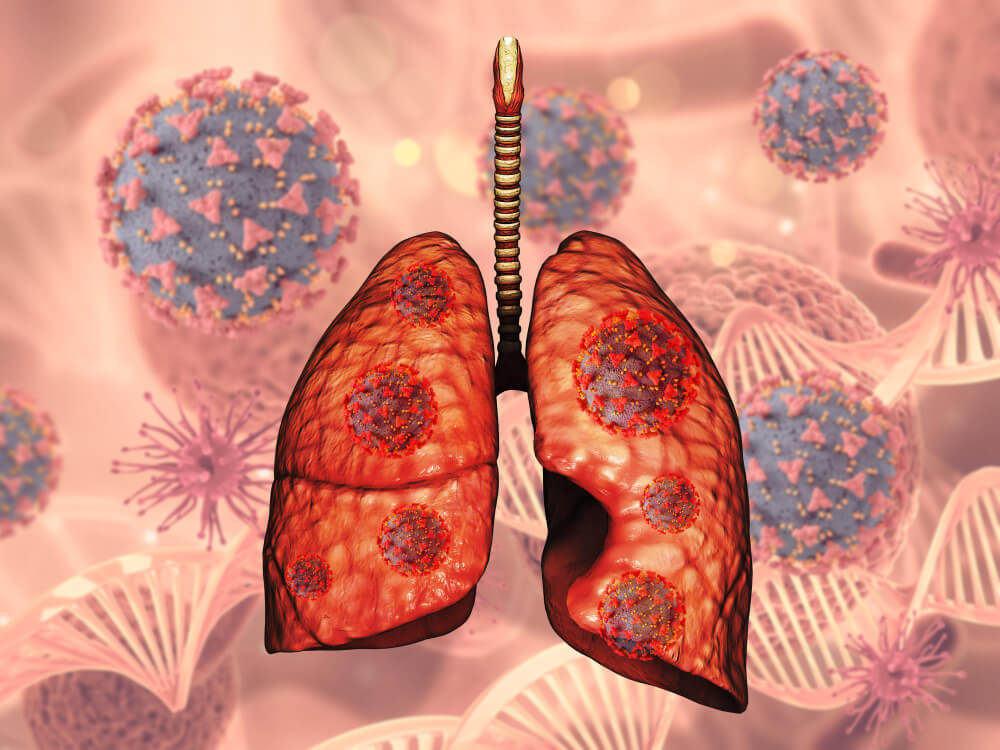Tuberculosis (TB), a global health concern affecting millions annually, remains a significant challenge in the field of respiratory medicine. With over 25 years of specialized practice in Respiratory Medicine, Infectious Diseases, and Tuberculosis, Dr. Kumar Doshi provides invaluable insights into understanding TB, its causes, symptoms, diagnosis, treatment, and prevention. In this comprehensive article, we delve into TB and Dr. Doshi’s expert guidance on managing this infectious disease effectively.
What is Tuberculosis (TB)?
Tuberculosis is a contagious bacterial infection caused by Mycobacterium tuberculosis, primarily affecting the lungs (pulmonary TB) but can also affect other parts of the body (extrapulmonary TB). Dr. Doshi explains that TB can be latent (asymptomatic) or active (symptomatic), characterized by coughing, chest pain, fever, weight loss, fatigue, night sweats, and hemoptysis (coughing up blood), requiring prompt diagnosis and appropriate treatment to control the spread, prevent complications, and support recovery.
Causes of Tuberculosis (TB)
- Bacterial Infection: TB is caused by Mycobacterium tuberculosis bacteria, transmitted through airborne droplets when an infected individual coughs, sneezes, speaks, or sings, leading to respiratory exposure, bacterial colonization, and infection in susceptible individuals. Dr. Doshi emphasizes the importance of early diagnosis, isolation, contact tracing, and appropriate treatment to prevent TB transmission, reduce infection rates, and protect public health.
- Risk Factors: Factors increasing TB risk include close contact with infected individuals, weakened immune system (HIV/AIDS, diabetes, malnutrition, cancer, immunosuppressive medications), substance abuse, overcrowded living conditions, poor ventilation, healthcare settings exposure, and travel to TB-endemic regions. Dr. Doshi recommends identifying and addressing risk factors, practising infection control measures, and following preventive strategies to reduce TB risk, protect respiratory health, and support overall well-being.
Symptoms of Tuberculosis (TB)
- Respiratory Symptoms: Common respiratory symptoms of pulmonary TB include persistent coughing (with or without blood), chest pain, wheezing, shortness of breath, rapid or shallow breathing, and increased mucus production, indicating lung involvement, inflammation, and impaired respiratory function. Dr. Doshi emphasizes the importance of recognizing TB symptoms, seeking medical evaluation, performing diagnostic tests, and implementing appropriate treatment strategies to control the disease, prevent complications, and support respiratory health.
- Systemic Symptoms: Systemic symptoms of TB may include fever, chills, fatigue, weight loss, night sweats, loss of appetite, muscle weakness, and lymph node swelling, indicating systemic inflammation, immune response, and infection affecting overall health and well-being. Dr. Doshi recommends monitoring systemic symptoms, staying hydrated, resting, and seeking medical attention if symptoms persist, worsen, or are accompanied by severe respiratory distress.
Diagnosis and Treatment of Tuberculosis (TB)
- Diagnostic Tests: Dr. Doshi emphasizes the importance of performing diagnostic tests, such as Tuberculin Skin Test (TST), Interferon-Gamma Release Assays (IGRAs), chest X-rays, sputum smear microscopy, culture tests, nucleic acid amplification tests (NAATs), and imaging studies, to identify TB, assess lung involvement, determine disease severity, and develop personalized TB treatment plans according to Dr. Doshi’s expert guidance.
- Treatment Strategies: Implementing targeted treatment strategies, including Directly Observed Therapy (DOT), combination antibiotic therapy (isoniazid, rifampin, pyrazinamide, ethambutol), multidrug-resistant TB (MDR-TB) medications (bedaquiline, delamanid, linezolid), supportive care (rest, nutrition, hydration), respiratory therapies, oxygen therapy, and infection control measures, according to Dr. Doshi’s expert guidance, can help manage TB symptoms, reduce bacterial load, prevent drug resistance, control disease spread, promote lung healing, and support recovery.
- Management and Prevention: Dr. Doshi recommends developing personalized TB management plans, practising good respiratory hygiene, including cough etiquette, hand hygiene, covering coughs and sneezes, avoiding close contact with sick individuals, maintaining a healthy lifestyle, managing chronic conditions, practising infection control measures, ensuring adequate ventilation, and following preventive strategies (BCG vaccination, latent TB treatment) to manage TB effectively, reduce recurrence, protect respiratory health, and ensure long-term respiratory health and vitality.
Conclusion
Understanding Tuberculosis (TB), recognizing symptoms, identifying risk factors, implementing targeted treatment strategies, and following Dr. Kumar Doshi’s expert guidance on diagnosis, treatment, and management are essential for managing this infectious disease effectively, controlling symptoms, reducing bacterial load, preventing complications, and ensuring long-term respiratory health and vitality.
By understanding TB, seeking timely medical attention, following recommended treatment regimens, practising preventive measures, and embracing a proactive approach to respiratory care, you can take proactive steps to protect, support, and optimize lung function, ensure optimal respiratory health, vitality, and quality of life, and benefit from Dr. Doshi’s expert advice on TB and respiratory well-being.

